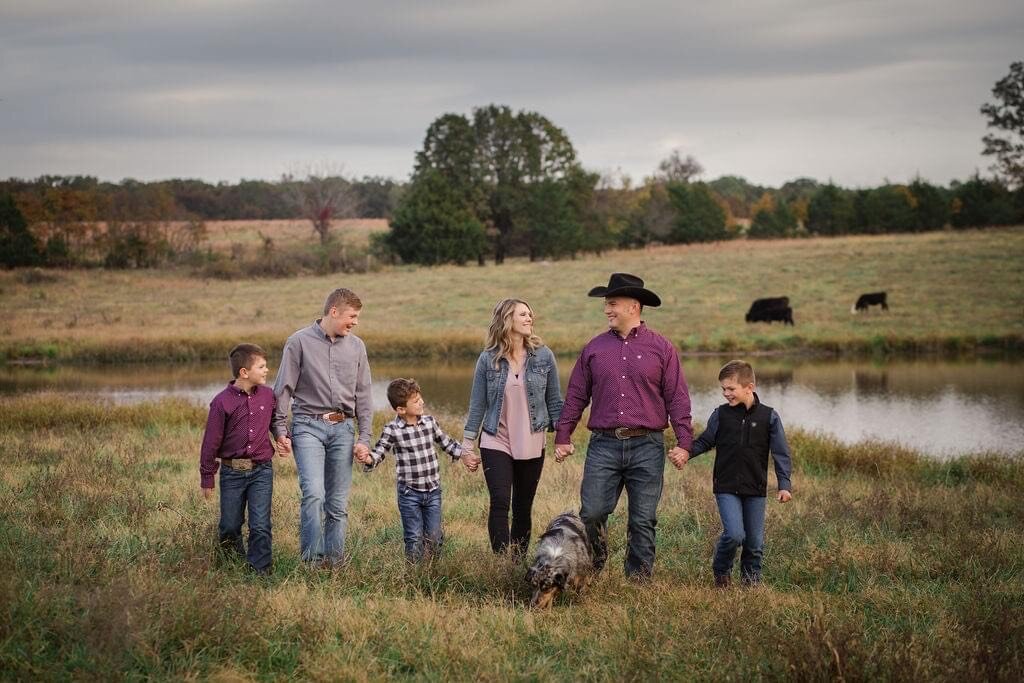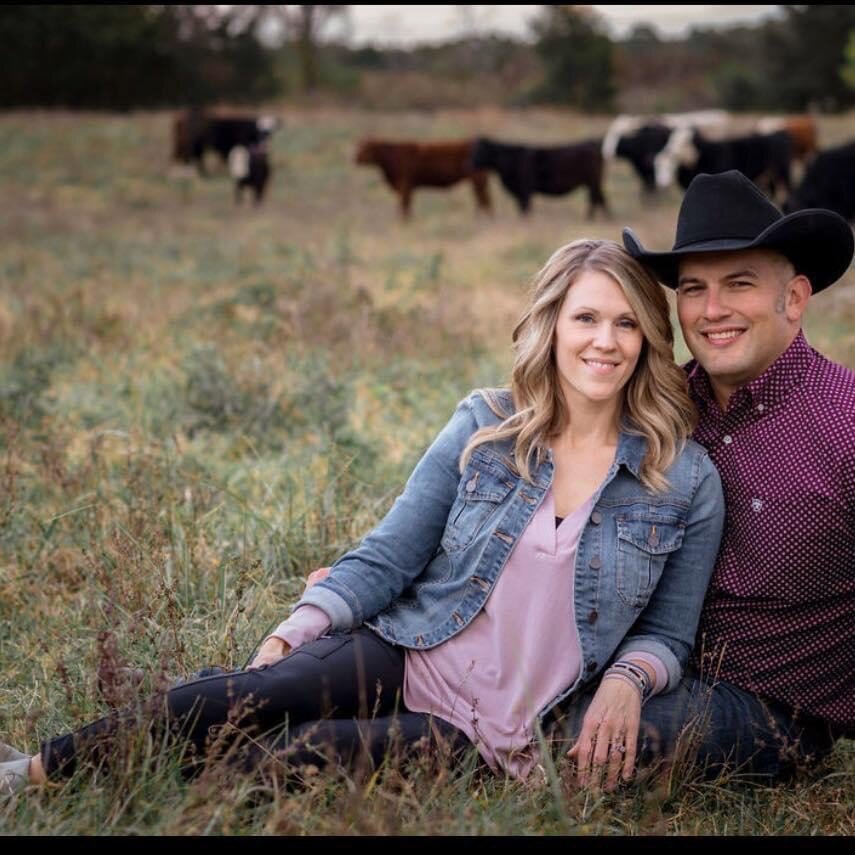Ep. 67 - Ag State of Mind with Jason Medows
A full time pharmacist, cattle rancher, and family-man, Jason Medows is also the host of the Ag State of Mind podcast - a show dedicated to the mental, physical and spiritual health of those in the western lifestyle. Jason joins us on the show to talk about his show, his career, and more! Located in Missouri, Jason is a unique guest to the That Western Life podcast and is involved in a variety of ways with the show. Recorded in February of 2021, Jason has been facing inclement weather that got as low as single-digits! In fact, right before recording, Jason had fallen into a pond right before recording when he was helping a neighbor chop ice.
Clubhouse BONUS!
Co-host Katie and Jason actually met earlier in the day in the Clubhouse app where Jason likened it to “drinking from a firehouse” with the wealth of knowledge available on the app. The value of connections and conversations that can happen in the app, it’s unlike anything else that is out there right now! If you want to learn more, check out Katie’s Clubhouse host page and give her a follow @KtSchr0ck.
Monday’s at 9:00 am pst, Ag Podcaster’s Room
Wednesday’s at 9:00 am pst, Farmer & Rancher Connect
Thursday’s at 9:00 am pst, Rodeo Fans & Athletes Connect
Ag State of Mind Podcast
Getting Started
Growing up on a cow-calf operation of over a thousand head of cattle that Jason’s father ran and managed, as well as with the livestock market in their town. Working with his dad through college, Jason purchased his own farm after college, relying on a passion for agriculture to continue building those roots.
In an unlikely twist, Jason had gone to pharmacy school and was constantly searching for some way to blur the two worlds of agriculture and being a health care provider. The mental health issues that began to surface in the ag world hit home for Jason, who had also struggled with his own mental health through college. That came together to have this mission in sharing his own unique perspective that he was allowed to have through his education, past and personal experiences.
“I don’t know how many podcasts there were when I started… when you look now there are 850 million podcasts, but I felt that this was the way I could reach the most amount of people,” says Jason who has been podcasting for a year and a half.
Overcoming Mental Health Issues
“The doctor even told my mom, ‘she’s going to have angry outbursts for a while, she’s going to be angry, she’s going to be a different person,’” shares co-host Rachel about a doctor visit she had after a traumatic horse accident. To this day, you can still see anxiety, panic-attacks, and depression that never happened before the accident, but is a definite part of her life today. It’s strange to see these mental health issues later, rather than early onset.
“When I was in high school, everything was so easy for me,” explains Jason. “And then I got to college and that wasn’t there… all of a sudden I was just another person in the crowd. That sounds really silly, but it’s something that really affected me!”
Despite only going to college eighty miles away, it might as well have been a world away for the small town high school boy heading to the big city for college. Talking openly in just the past years, Jason admits that he was on his way to being an alcoholic as it was a way for him to numb the pain. If it wasn’t for his wife, he may have never stepped back and confronted those issues. It was over seven to eight years for him to talk about these issues.
“But why me?”
There is a lot of structure through elementary, middle and high school. For high frequency youth members, if they don’t have a big next step plan, it can be very challenging for them to get into the swing of new opportunities or finding opportunities that aren’t handed to them. Research across the board is that access to mental health is not great across the world, and we posed this question to Jason about the prevalence of mental health in rural communities.
“It’s an issue that we deal with, it’s a resistance that we deal with,” says Jason. “The town that I grew up in was 3,000 and everybody knew you and knew what you were going too and you didn’t want that out on display… you wanted to keep it as close as possible.”
Worrying about “stuff getting out” is no reason to not get better. The way Jason sees it is that no one would fault you for going to the doctor for high blood pressure, diabetes or a broken leg - your mental health is no different. That’s the thing that people need to start realizing - it’s just as integral, or even a step further, more integral to your wellbeing than those other items that you may not bat an eye at for going to the doctor for assistance.
It’s kind of a double edged sword; those in rural communities have to be independent in order to survive, but that independence can be detrimental when you need help with your mental health. We don’t want to take away or discourage that independence, but at the same time that independence doesn’t lead itself to outside help. That’s a really tough battle that we are fighting in rural communities!
“It takes someone like me, who is willing to make the sacrifices and not care about what other people think for a while and tell my story and hopefully other people will see that, see the help it’s gotten me, and see value in that for themselves and start to speak out,” says Jason, who isn’t bragging on himself, he’s just someone who has been through the bad, the hell, and the trip that you can go through in your own head. “I am on the other side of that and I want to tell people about that. I have all this information and all this hope to give people that I want to share with everybody, because people need it!”
Relatability Importance
In rural America and agriculture, the relatability part is very important. In any other profession or way of life, all of the stress is very real in a day-to-day situation. A normal therapist who wouldn’t understand that way of life would probably say, “quit” or “do something different.” It is way more complex than a black and white decision so relatability is key! Some people have to understand that someone else knows what you are going through!
“It helps when you are able to sit down and chit-chat with other people about it,” agrees Rachel.
“Anxiety is for the Democrats,” may be a punchline of a joke from one of Rachel’s favorite comedians but it has some really real notes when it comes to this topic. But mental health is an equal opportunity offender; it doesn’t have an age, a race, a gender, or a way of life in its choices. It’s such a complex, layered and dynamic “thing” that we all deal with no matter what.
COVID Impacts on Mental Health
While research is important, Jason doesn’t dive too deep into the research, he is more interested in what is going to interest in “real-life.” The research and the what’s going to happen and the trends, that has a place, but Jason doesn’t pay a whole lot of attention because he sees what is happening in his own life to keep it real. This is the whole relatability part for him and his listeners.
“When you actually go to different towns, you see what people are really like versus what you see on the news or read on the news,” says Rachel. “What you are physically seeing yourself is what you are judging your decisions and opinions on to some sort of degree.”
There are going to be long-term effects that will come out of the pandemic for youth. But not everybody has that in rural communities and you can see the struggle that many Americans are going through. “What I am seeing with these kids in rural communities, is that when they were forced out of school in the spring, a lot of them weren’t going to good homes or going to a place that they felt comfortable and that worries me! Sometimes the school system provided those kids with a place to be and a place of reliability.”
On the flip side, there are a lot of kids that are doing well in the agricultural community who immediately went to work on their family farm or even started their own businesses. Other kids went completely homeschooled, forming agritourism, hatching chicks, raising cattle, heifers that are calving, show cows they are working with - it’s definitely a much more exciting lifestyle than a child that is stuck in an apartment.
“I would rather hear about your doctor’s appointment than read your obituary.”




